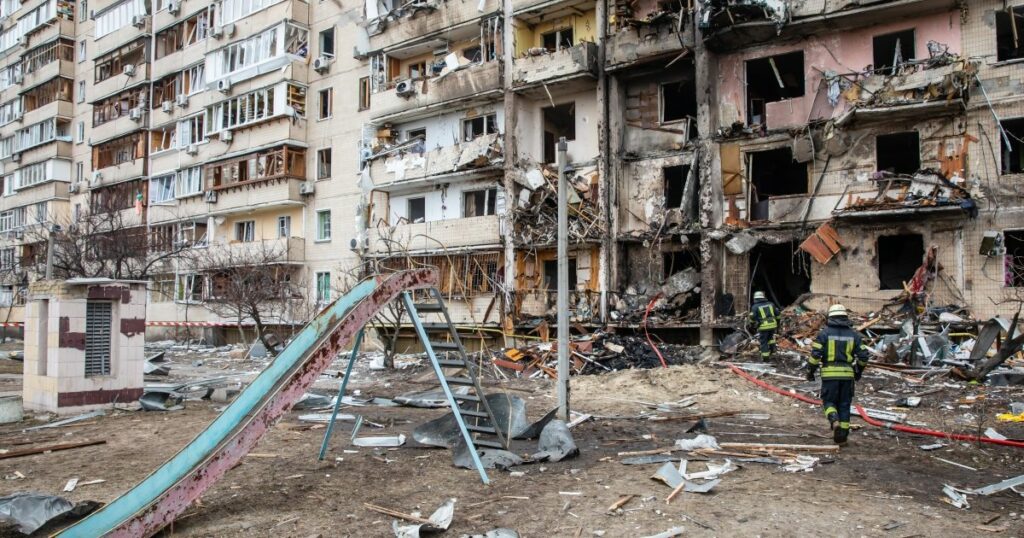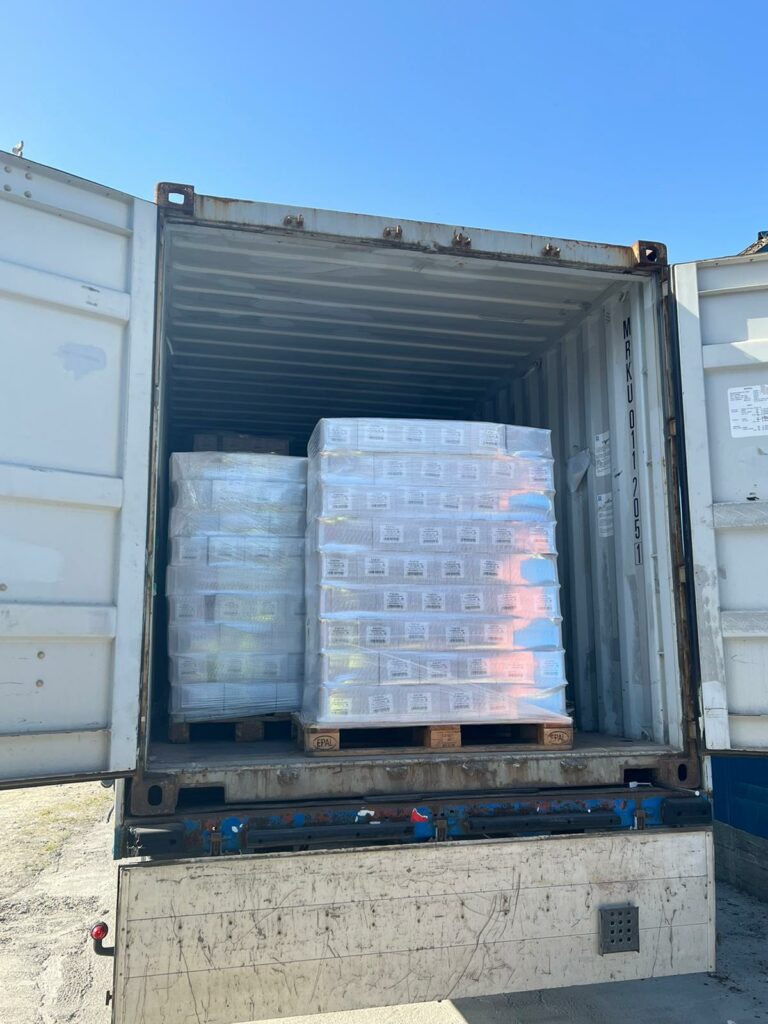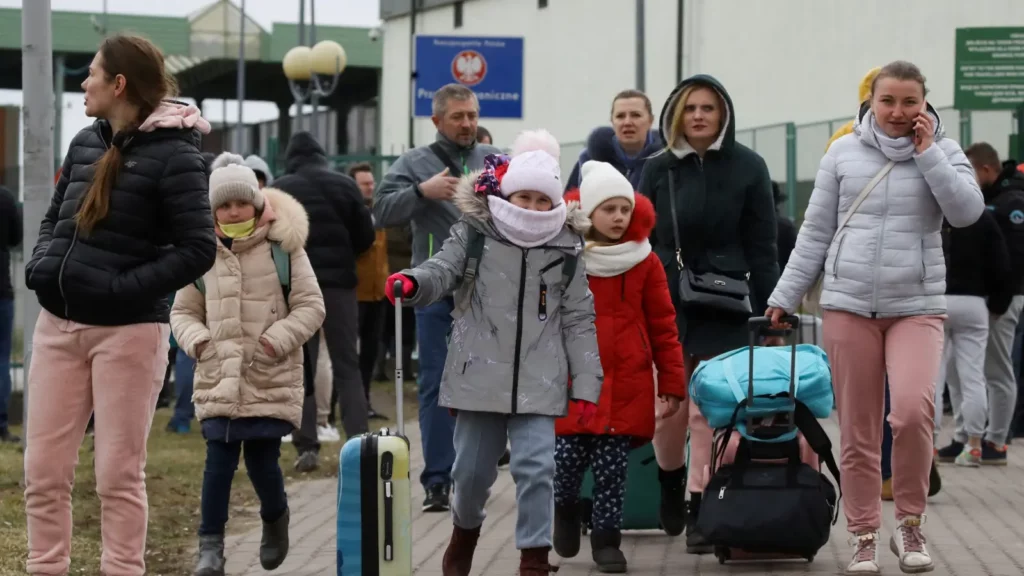Voices of the Kea Community – Support for Ukraine
Kiwi around the world are responding to the humanitarian crisis in the Ukraine crisis offering help and support to those affected. This month we spoke to four of these Kiwi to find out what they are doing and what they want Kiwi back home to know.
Nigel Jollands is a Kiwi working as Associate Director, European Bank for Reconstruction and Development. His institution is the largest FDI in Ukraine and he is involved in the preparation of the Bank’s response. He has been personally leading the preparation of a rapid infrastructure assessment and action programme to help city governments respond to the increased pressure on social/city services from the influx of refugees and/or the destruction of infrastructure from the conflict.
When I woke up on the morning of 24th February and saw the news, I was so shocked, I couldn’t believe that it had come to this. Stunned. The first thing I did was call my colleague Sergiy. I knew he had left Kyiv with his family the week before to go to his dacha near Borysopol airport. When I got hold of him he was driving West as fast as he could, the bombs had hit the airport less than 5 km from his dacha. He was driving for his life with his wife and children, Russian helicopters buzzing overhead. Not only is our bank heavily exposed financially, but many of my colleagues and friends are directly affected by the war. While we have extracted most of my colleagues’ families from our Resident Office in Kyiv, some elected to stay – whether to look after aged family or sign up. One of my team members has traded his laptop for a rifle and is on the front line as I type.

I’ve been working in Ukraine since 2009. I feel heavily invested in the country, in their aspirations to be an open democratic country where everyone can fulfil their potential. They don’t deserve this. This conflict is very close to us whether we are in Europe or Aotearoa. It’s close to us because it is an attack on people’s sovereignty – Ukrainian’s ability to decide how they live their lives. And we know from bitter experience in Aotearoa the impact and devastation that denying a people’s sovereignty can have. It’s also close to us because this conflict has the very real risk of expanding beyond the current border of Ukraine and engulfing much more of the globe.
Kieran Bligh, is a global shipping and supply chain expert who previously worked for the World Health Organisation as part of the Covid-19 response. He’s now the Medical Logistics Officer – Ukraine Response, for IsraAID, an Israeli non-governmental organisation supporting communities affected by humanitarian crises.
I am working with a consortium of NGOs and Government organisations on the border of Southern Ukraine and Romania to ensure the smooth flow of lifesaving cargo through to Odesa, Mykolaiv, Kherson, and beyond. We have moved over 200 trucks to Izmail, Odesa, and beyond and utilised river transport for large bulk supplies. The single biggest challenge is to ensure we quickly move the most important supplies to where they need to go. We see huge food insecurity and medical needs in cities and regions currently under Russian occupation in the East. We have a wide-reaching network inside of Ukraine, and we continue to deliver through strategic partnerships and innovation; however, each day, we face a different challenge that must be navigated.

What’s happening in Ukraine is extremely unfair. In this situation, I have a unique skill-set, having worked for USAID, WFP, and WHO on emergency response supply chains. I put my hand up to volunteer with IsraAID, to do the best I possibly can to help mitigate suffering. As a trusted mentor once said to me, sometimes the most important thing you can do is just show up and give your time. I have been to Ukraine several times in the last few weeks, and seeing the suffering firsthand is heartbreaking. There are massive shocks in global food security and health systems worldwide. With all the turmoil in the world, we have a unique opportunity in New Zealand to take the moral lead and show how to treat people with dignity and respect. I would like to see New Zealand open up more gateways for conflict or food security-induced displaced people to seek asylum in New Zealand. We must not forget about yesterday’s emergency when a new emergency takes up the current news cycle.
Kelvin Lynch is an offshore Kiwi working as the chief delivery officer at Aptitude software in London. His family has registered in the UK Homes for Ukraine scheme, which places displaced persons from the Ukraine into temporary homes in the UK.
Our future house guest (I’m uncomfortable with calling her a refugee) has lost her beauty salon in Kharkiv, along with all her possessions. She’s currently staying with her brother in Odesa which is not safe either. Her boyfriend is staying behind to defend his country. She is very talented (she’s worked at Milan Fashion Week for example) and just wants to continue with a career that she knows is no longer possible in Ukraine. We have become very emotionally attached to her and her situation already. We can’t wait for her to be here, and to provide her with all the support she needs.
It’s hard to believe that this is happening in this day and age in Europe. It’s sickening. So many lives are going to be ruined (or ended) unnecessarily. My grandfather fought in the First World War as an 18 year old. His experiences on the Western Front in Northern France had a negative impact on the remainder of his life. In my time overseas I’ve always been aware of the fondness of how our country is viewed, and have felt almost duty bound to do my part to uphold that reputation. We have a great sense of community and doing what’s right in New Zealand. Helping others in need is what we do. This situation is tailor made for us to do our thing.

I work for a software company and we do the majority of our development out of Poland. I have been in daily Business Continuity Planning meetings since the conflict began and the additional scenarios that we’re now planning for, hardly bear thinking about. Many of our staff in Poland are housing Ukrainian families and we immediately gave all staff 3 days of paid leave to assist with relief efforts. One of our employees has founded a charity that is running cancer drugs into Kyiv for children. As a firm we have got right behind that and organised many fundraising events to further that very dangerous but necessary work.
I want Kiwi to understand that this conflict and the impacts from it, have a very long way to run yet. Ukraine will need our support for years to come. I hope that New Zealand does its part and takes in those in need. I must admit that I haven’t had much exposure to Ukrainian people in the past but they’re just like us. Hard working, humble, and very respectful people. They deserve everything that we can do for them.
Vanessa O’Neill is the Regional Director Europe for NZTE. She has recently taken over the role and is part of a special project team established to ensure Kiwi businesses had all the practical support and information, they needed on the evolving conflict. Her team has hosted webinars, round tables, and one-on-one advisory sessions with businesses to update them as needed.
I heard about the crisis the week before I left New Zealand to move to London. I have to say I felt a lot of different emotions all at once; empathy, concern, worry to name a few. My thoughts immediately went to the Ukrainian families who previously had been living their usual lives, and now had to quickly find safety and shelter with their most precious items, some in new countries and kind strangers’ homes. I also felt for our team who were based in the region and their safety and wellbeing. Making sure our team is ok and getting the wellbeing support they need is part of my day, as is watching online news sites for updates.

I think it’s just in our Kiwi DNA to help people in need. At NZTE we hold up Manaakitanga as one of our characters. We have a direct link into New Zealand with our work and often have a cause mindset, so it was not a surprise when the team were incorporating some form of community service around the conflict in their flexi working week. Some of the ways our teams got involved was donating goods, fundraisers, supporting family and friends who were directly affected and supporting families who had needed to leave the region and required temporary accommodation.
From a business perspective I think the conflict has highlighted the need for New Zealand companies to consider their contingency planning process, and prepare for long, potentially worst-case scenarios, with substantial volatility. This is not just the case for Ukraine, in a broader Europe context, but more globally as well. From a personal perspective the best thing New Zealanders can do if they wish to help is donate to one of the New Zealand organisations running appeals and supporting the work on the ground in Ukraine such as the Red Cross.

 MENU
MENU






